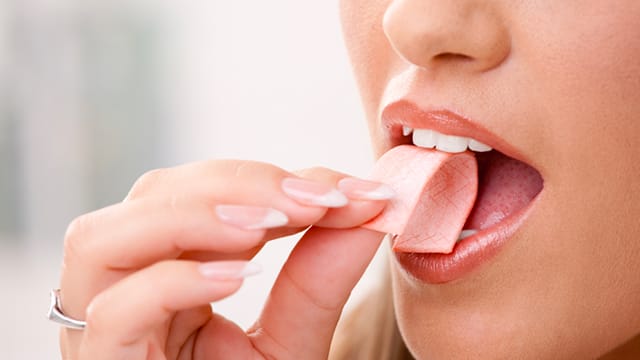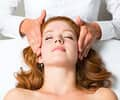TMJ and Related Symptoms
TMJ is a disorder of one or both of your jaw joints, clinically known as temporomandibular joints. Any number of factors might bring on TMJ, such as jaw injuries, arthritis, autoimmune diseases, and teeth clenching and grinding. Genetics, hormones, and behaviors can all factor into TMJ.
TMJ has a wide reach, affecting body parts and functions associated with your jaw or even near your jaw. If you have TMJ, you might experience any of these symptoms:
- Jaw or jaw joint pain or tenderness
- Painful jaw joint popping, clicking, or grating
- Jaw muscle stiffness
- Neck and shoulder pain
- Facial aches or pain
- Frequent headaches
- Difficulty opening/closing your mouth due to jaw locking
- Chewing difficulty or pain
- Vision issues
- Ear problems, such as pressure, pain, or tinnitus (ringing in the ear)
- Vertigo/dizziness
Vertigo/TMJ connection: When inflamed, your jaw joints can reach your ears, located behind and above your jaw joints and your inner ears. The inner ear contains the sensors telling your brain about your body's position and movement. Consequently, the inflammation disrupts the brain's signals about your body's position in space – i.e., your sense of balance. As a result, you could experience a loss of balance or dizziness. Nausea and vomiting could accompany your vertigo.
Treatments for TMJ and Vertigo
If you experience any TMJ symptoms, consult your dentist or doctor to diagnose and treat the disorder correctly. According to The TMJ Association, Ltd., TMJ can occur concurrently with other disorders, such as fibromyalgia, lower back pain, and endometriosis. And your vertigo might be the result of another medical issue, such as a head injury or migraines, instead of TMJ. So, it's always good to get a comprehensive health screening.
If your vertigo results from your TMJ, you should avoid driving and other activities where dizziness puts you or others in danger – until you've successfully treated your TMJ. You can also undergo a series of head positions to get back your balance.
If you have a rather mild or non-chronic case of TMJ, you might be able to heal yourself. Try these home-care methods to see if you feel better after a while:
- Eat only soft foods.
- Apply ice packs to your jaw to reduce inflammation.
- Get pain and inflammation relief with over-the-counter medications.
- Avoid extreme jaw movements, such as singing, yelling, laughing big, yawning big, or chewing gum.
- Open your mouth as little as possible to brush and floss.
- Do some simple physical therapy exercises.
- Get a massage or try other relaxation techniques.
For more advanced TMJ cases, the Mayo Clinic notes that treatments can range from minimal to invasive. Treatments include:
- Prescriptions for pain, inflammation, muscle relaxers, and low-dose antidepressants used to control pain, teeth grinding, and sleep disorders
- Therapies, such as physical therapy, counseling, and the use of mouth guards or oral splints
- Injections, such as botulinum toxin type A into the jaw muscle and corticosteroid into the jaw joint
- Surgeries, including minimally invasive procedures and more complex open-joint surgery
Though not a common complication, vertigo can perhaps relate to your TMJ. To get the best diagnosis for both conditions, relate all your symptoms to your dental and medical professionals. They can then advise you on the appropriate tests and treatments leading to TMJ and vertigo relief.
This article is intended to promote understanding of and knowledge about general oral health topics. It is not intended to be a substitute for professional advice, diagnosis or treatment. Always seek the advice of your dentist or other qualified healthcare provider with any questions you may have regarding a medical condition or treatment.
ORAL HEALTH QUIZ
What's behind your smile?
Take our Oral Health assessment to get the most from your oral care routine
ORAL HEALTH QUIZ
What's behind your smile?
Take our Oral Health assessment to get the most from your oral care routine
Join Us
Get the best of your oral health routine and take it to the next level with expert advice, recommendations, products and solutions and special offers.
Join Us
Get the best of your oral health routine and take it to the next level with expert advice, recommendations, products and solutions and special offers.















